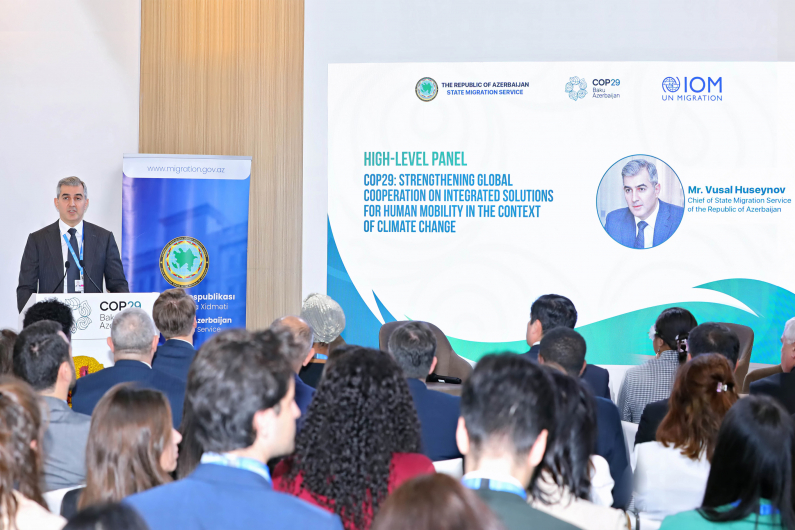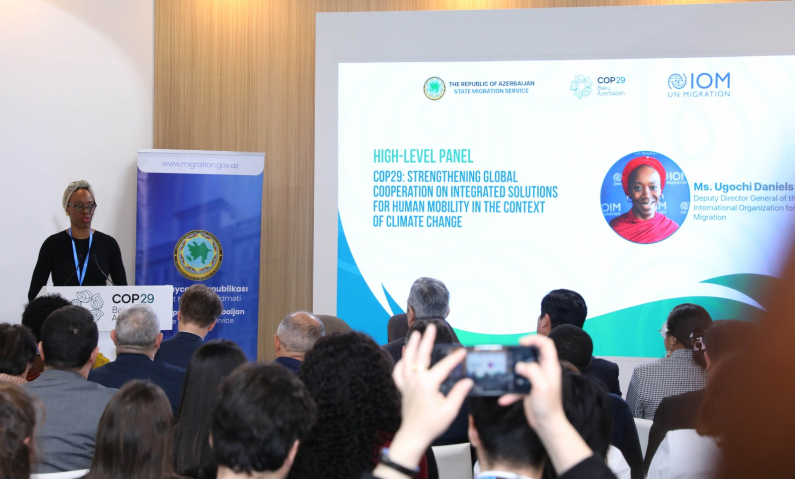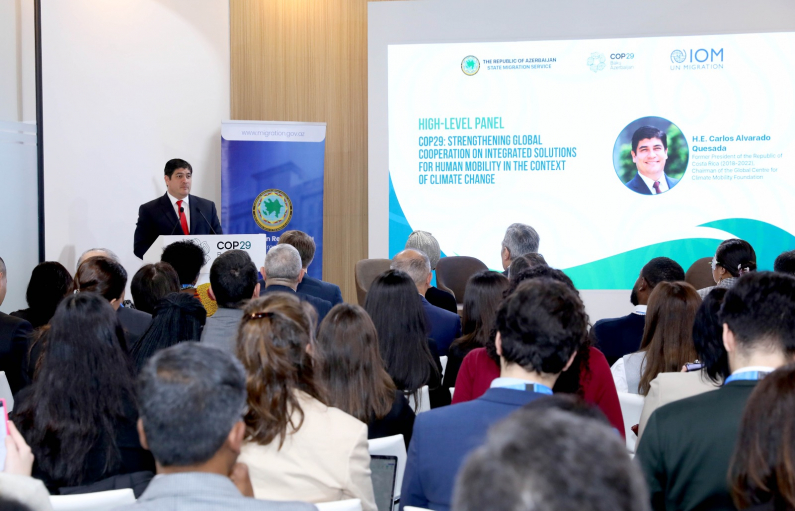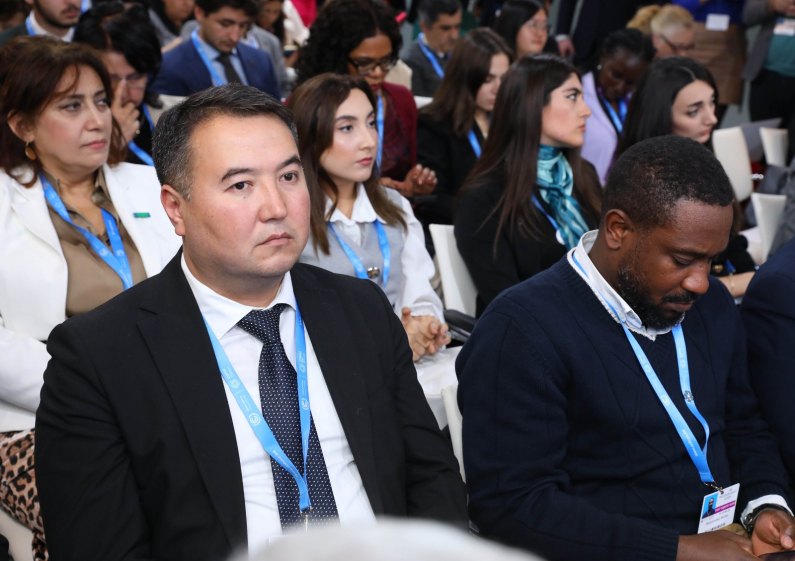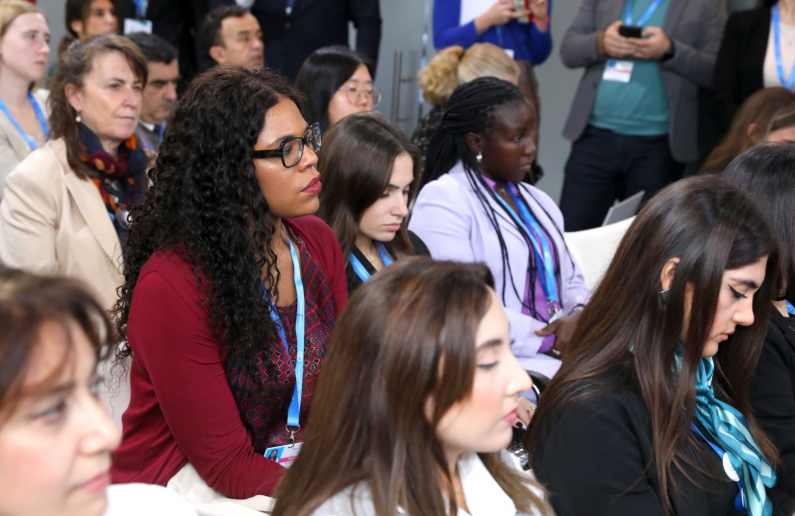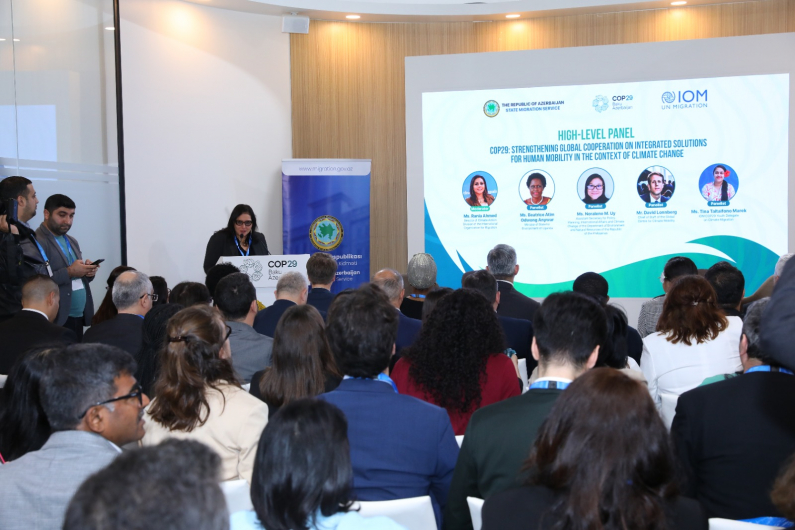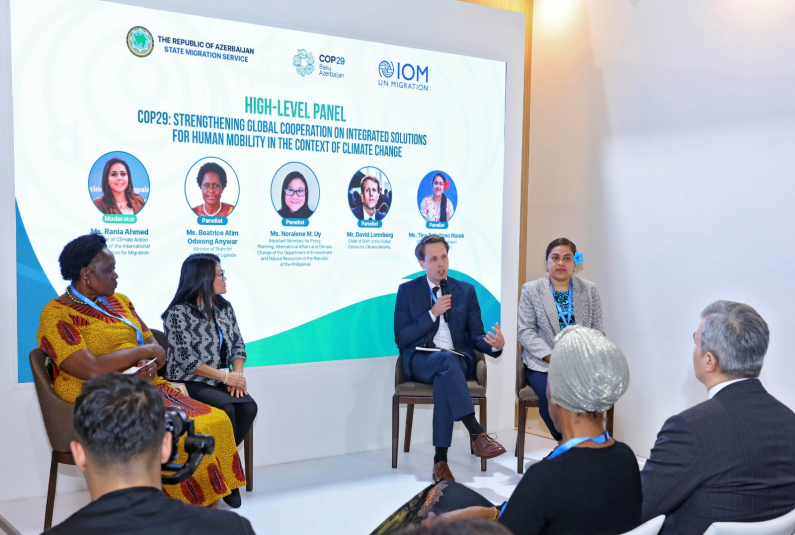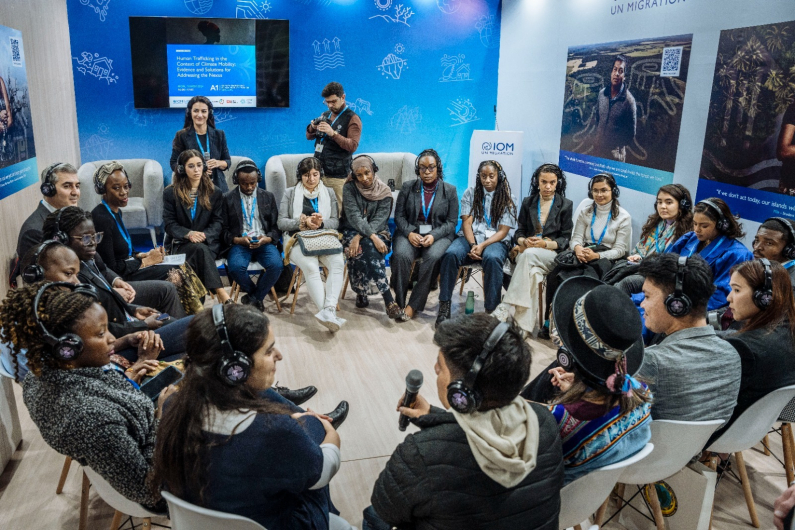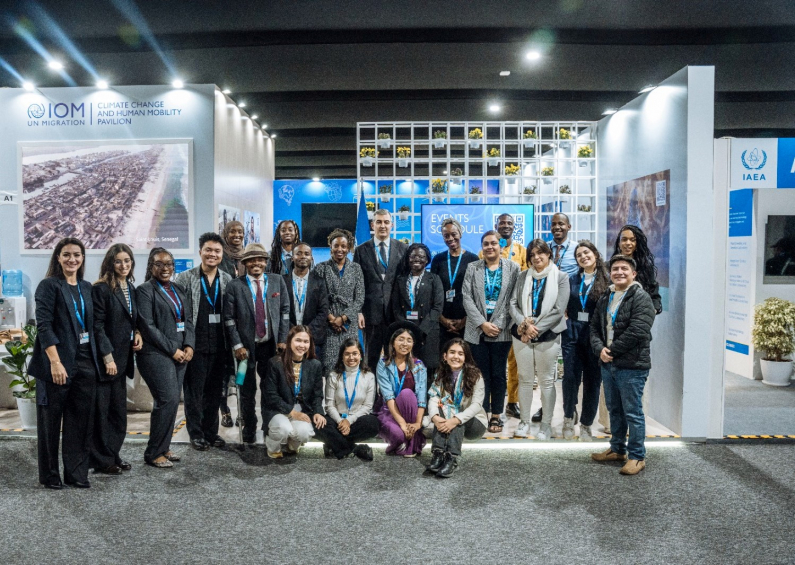A high-level panel discussion on human mobility in the context of climate change
Within the framework of the 29th session of the Conference of the Parties to the UN Framework Convention on Climate Change (COP29) on November 18, 2024, the State Migration Service (SMS) and the International Organization for Migration (IOM) have jointly organized a High-level Panel on COP29: Strengthening Global Cooperation on Integrated Solutions for Human Mobility in the context of Climate Change at the Azerbaijan pavilion located in the Blue Zone at the Baku Olympic Stadium.
The event aimed to increase the awareness of relevant stakeholders regarding the impact of climate change on migration processes, promote dialogue on this topic at the global level among the governments, international organizations, civil society, and the private sector, and enhance international cooperation for developing integrated solutions to the multifaceted challenges of human mobility in the context of climate change.
At his opening speech, Vusal Huseynov, Chief of the State Migration Service, II rank state migration service counselor, greeted the participants and highlighted that this event, which is the end product of the joint actions around climate change and human mobility within Azerbaijan's COP29 presidency, will also contribute to formulating inclusive and holistic strategies on climate-induced migration in the post-COP29 period. In addition, it was mentioned that the Baku Call on Climate Action for Peace, Relief and Recovery was launched during the "High-Level Panel on Climate and Peace" held at COP29. This initiative will open up new opportunities for expanding discussions and cooperation on this topic. The Chief of the Service underlined that Azerbaijan, as a Champion Country for the implementation of the Global Compact on Migration and as the Chair of the Almaty Process, is taking measures at the global and regional levels to address the multifaceted challenges caused by the complex nexus between the human mobility and climate change, and continues its efforts in this direction. Emphasizing the importance of partnerships to manage movement of people, including climate-induced mobility, with dignity, equity and resilience, Vusal Huseynov stated that the Silk Road Declaration, which is currently under negotiation and planned to be adopted at the regional level, is a good example to the aforementioned efforts.
Later, Ms. Ugochi Daniels, Deputy Director General of the International Organization for Migration, the main partner of the event, informed about the scale of the mobility occurring as a result of climate change, and the situation in different regions. It was noted that, according to forecasts, more than 260 million people will be internally displaced by 2050. However, with effective climate measures, this number can be reduced by 80 percent.
Then, Carlos Alvarado Quesada, the former president of the Republic of Costa Rica, spoke at the event and shared his views on migration and climate change.
The event continued with a video showcasing people forced to migrate due to climate change in various regions of the world.
Then the panel discussion started. Moderated by Ms. Rania Ahmed, Director of the Climate Action Division at IOM, the panel featured high-level officials from relevant institutions in Uganda and the Philippines, a representative from the Global Center for Climate Change, and a COP29 Youth Delegate on Climate Migration selected through an initiative by the International Organization for Migration, as panelists. During the discussions, speeches on the impact of climate change on human mobility patterns in different regions, the strengths and weaknesses of the existing policy framework on climate-induced human mobility, the role of international cooperation in preventing the negative effects of climate change on human mobility, and other topics were met with keen interest.
In addition, the Chief of Service also met with the IOM COP29 Youth Delegates on Climate Migration, who were selected to contribute to the global negotiations on climate change and migration, and to encourage the participation of young people in discussions in this direction. During the meeting, Azerbaijan’s efforts in promoting discussions on the relationship between climate change and migration were highlighted. Ideas for potential cooperation were exchanged, and the young representatives were wished success in their future endeavors.
 The Republic of Azerbaijan
The Republic of Azerbaijan .png)
